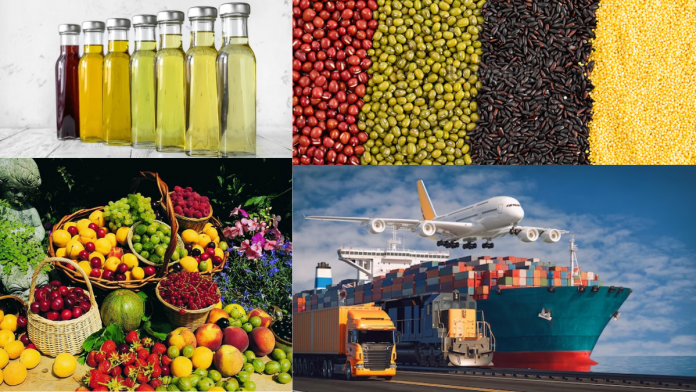News in brief:
– November 2023 saw EU agri-food exports trade reach â¬20 billion, contributing to a cumulative total of â¬210.8 billion since January.
– Local farmers benefit from increased exports to the United Kingdom, signaling market stability and demand for products like cereal preparations, fruits, nuts, confectionery, chocolate, and pigmeat.
In a recent report by the European Commission, November 2023 marked a significant milestone as EU agri-food exports soared to â¬20 billion, contributing to a cumulative total of â¬210.8 billion since January. Noteworthy increases were observed in processed products, particularly cereal preparations and fruit and nut concoctions.
Cereal preparations and milling products emerged as leaders, experiencing a commendable 7% surge equivalent to +â¬1.4 billion. Following closely were fruit and vegetable preparations (+14%, +â¬1.3 billion) and confectionery and chocolate (+12%, +â¬1.1 billion). However, the cereal sector faced a setback with a -14% decrease in export value, attributed to lower export prices despite a 7% volume increase.
Global trade dynamics
EU exports displayed resilience, with an 8% uptick in trade with the United Kingdom and notable growth in Türkiye (+21%, +â¬781 million) and Ukraine (+19%, +â¬494 million). The United States encountered a -7% decline, mainly due to reduced spirits and liqueurs exports, while China, the third-largest destination, saw a -5% decrease linked to lower pigmeat exports.
The EU’s positive agri-food trade balance underscores the competitiveness of its exports. For local farmers, this implies potential market stability and increased demand for certain products. The notable increase in exports to the United Kingdom, driven by higher prices for various products, has direct implications for EU farmers specialising in cereal preparations, fruits, nuts, confectionery, chocolate, and pig meat.
Challenges in imports
On the flip side, November 2023 witnessed a 16% decline in EU agri-food imports, amounting to â¬13.1 billion. Cumulative imports from January to November totaled â¬146.1 billion, reflecting a 7% decrease from 2022 levels. While some products like tobacco, sugar, vegetables, olives, and olive oil experienced increases, reductions were notable in oilseeds, protein crops, vegetable oils, non-edible products, coffee, tea, cocoa, spices, and margarine due to both price and volume reductions.



